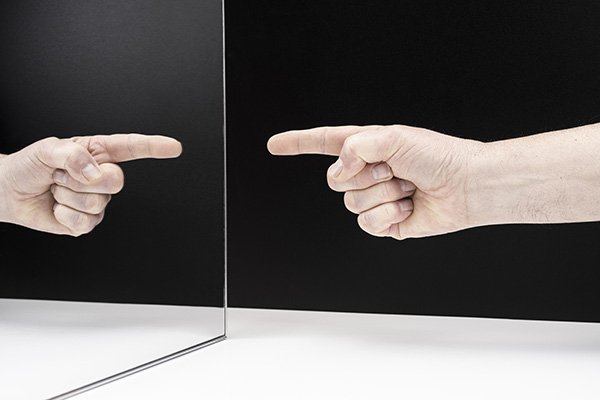Understanding Projection in Relationships: How to Recognize and Heal
Have you ever found yourself frustrated with your partner, only to later realize that what bothered you was actually something you struggle with yourself? This is projection in action. In relationships, projection happens when we unconsciously take our own emotions, fears, or unresolved wounds and assign them to our partner. It’s a defense mechanism—one that can create distance and misunderstanding in even the strongest relationships.
At Insights Counseling Center, we often work with couples who feel stuck in repeating conflicts, not realizing that projection may be at play. The good news? Becoming aware of this pattern can be the first step toward healing and deepening connection.
What Does Projection Look Like?
Projection can show up in subtle and not-so-subtle ways in a relationship. Here are some common examples:
Blaming Your Partner for Feelings You Struggle With – If you’re feeling insecure about your own attractiveness, you might accuse your partner of not giving you enough attention or being interested in someone else.
Seeing Your Past in Your Present – If you grew up in a household where you felt ignored, you might project that experience onto your partner, assuming they don’t care about your needs—even when they’re trying their best.
Accusing Your Partner of Something You Fear in Yourself – A classic example is someone who worries about their own ability to be faithful and instead suspects their partner of cheating, despite having no real reason to believe it.
Criticizing Traits You Secretly See in Yourself – If you struggle with control, you might accuse your partner of being controlling. If you feel unmotivated, you might judge your partner for being lazy.
At its core, projection happens because it’s easier to see our struggles in someone else than to face them in ourselves. But left unchecked, it can damage trust, create unnecessary conflict, and prevent genuine intimacy.
How to Recognize Projection in Yourself
It can be difficult to admit when we are projecting, but doing so can be incredibly freeing. Here are a few ways to check in with yourself:
Notice Strong Emotional Reactions – If you find yourself having an intense reaction to something your partner says or does, ask yourself, “Could this be more about me than them?”
Reflect on Patterns – Do you often have the same complaint about your partner? Could it be mirroring something unresolved within you?
Consider Your Past Experiences – Are you reacting based on past wounds rather than the present moment? Does your partner remind you of someone from your past?
Ask Yourself What You Might Be Avoiding – Is it possible that accusing your partner allows you to avoid dealing with a difficult truth about yourself?
Recognizing projection isn’t about blaming yourself—it’s about self-awareness. The more we understand our own emotions and reactions, the more we can break unhealthy patterns and create space for a deeper connection.
Moving Beyond Projection: How Therapy Can Help
Once you recognize projection, what’s next? It’s not about self-judgment; it’s about self-growth. In couples therapy, we help partners:
Understand Their Own Triggers – Therapy provides a safe space to explore what past wounds might be influencing present conflicts.
Improve Communication – When projection is at play, misunderstandings multiply. We help couples learn how to express themselves in a way that fosters understanding rather than defensiveness.
Rebuild Trust – By identifying and addressing projection, couples can move from blame to empathy, strengthening their emotional bond.
Learn to Own Their Feelings – Instead of projecting discomfort onto a partner, individuals can learn to process their emotions in a healthy, constructive way.
If you’re starting to see how projection may be affecting your relationship, you’re not alone. Recognizing it is a sign of growth and an opportunity to move toward a stronger, more authentic connection.
At Insights Counseling Center, our experienced therapists specialize in helping couples work through patterns like projection so they can build trust and intimacy. If you're ready to explore how projection may be shaping your relationship and how to create healthier dynamics, we’re here to help.
Schedule a session today and take the first step toward a more fulfilling, connected relationship.

